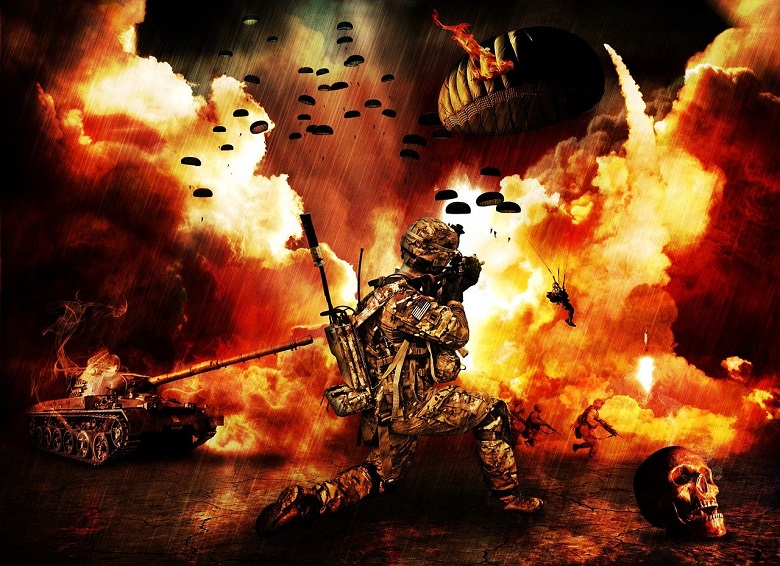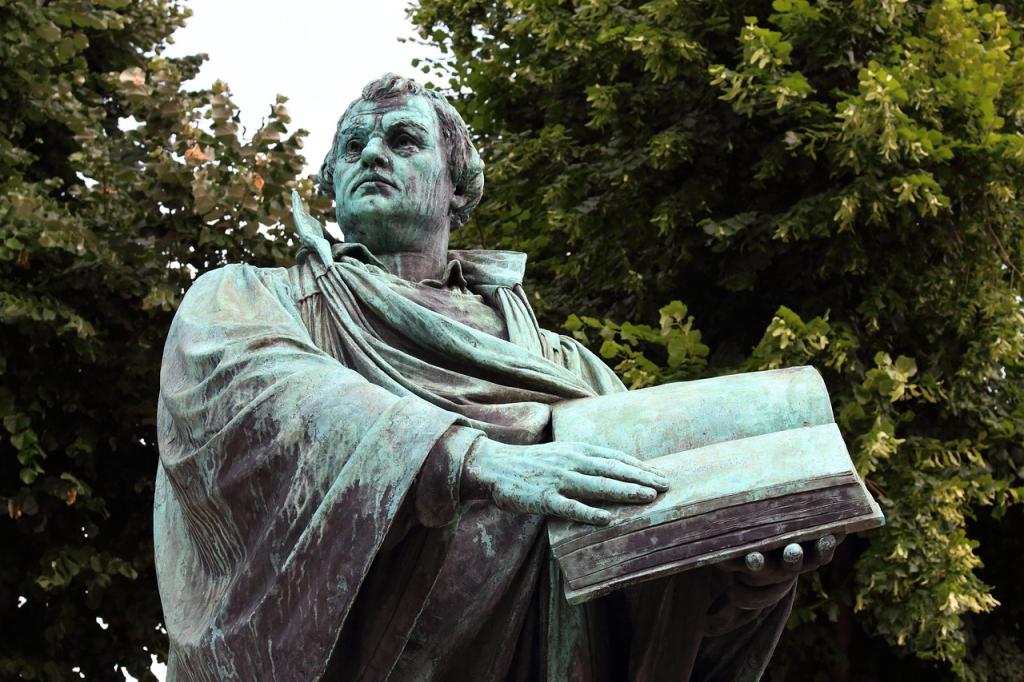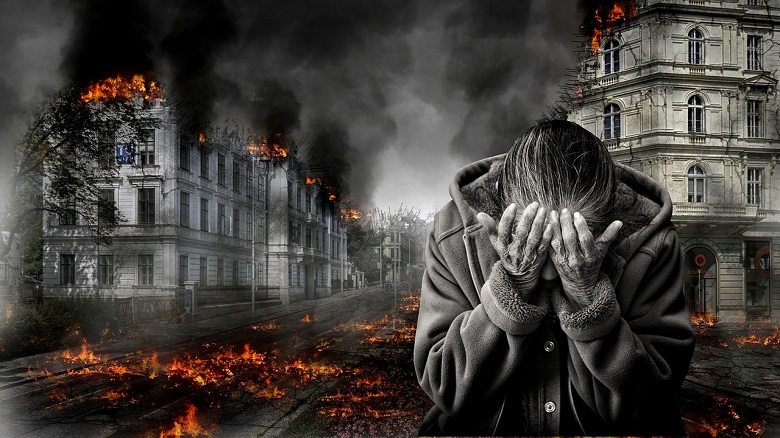Throughout history and continuing today, humanity has invented uncounted theologies that have caused great harm to people. Religion has frequently been used as a weapon to force other people to do what those in power decide is appropriate. For centuries, religious men have blamed their own greed, fear and selfishness on vast pantheons of deities in order to buttress their own authority. It is much more forceful to claim that your own will is the will of God if you want to control someone else’s behavior.

Author’s note: For the purposes of this discussion, we will use the general definition that a dangerous theology is a theology that has been used for harmful purposes by those who claim to be its advocates and protectors or that has caused harm to its believers. We are using the word “theology” as a generic phrase to mean all systems of religious belief. We are not using the word “religion” because neither in ancient Greek nor in ancient Hebrew, is there a word for “religion.” It might seem a rather insignificant point but concepts matter in these kinds of discussions. Also note that we are limiting the present discussion to the Western world and culture, and specifically those cultures that arose out of the area around the Mediterranean Sea in ancient times and spreading into Europe, Western Asia, Africa, the Americas and Australia.
Why do we call certain theologies dangerous?
The answer to that question, like many questions in the study of religion, is both simple and complex. The simple answer is that some theologies have caused their adherents to cause harm to others or to be harmed themselves. That is an absolute definition. It is not so clear, however, to assess the nature and degree of that perceived harm, making the question somewhat more complex.
When did dangerous theologies begin?
Of course, we cannot place an exact date on theologies that developed and evolved in pre- and early historic times. What we can do is look at the historical and archaeological data at our disposal and make some conclusions about what seems most reasonable.
We do know from these sources that ancient peoples, as soon as they became more than hunter/gatherers and possibly before that, began fighting over resources, land, and power. It is not impossible that some of these pre-Biblical conflicts were a result of religious beliefs but it is more reasonable to conclude that these early conflicts of unsophisticated groups were more for material gain than for any more esoteric purpose. For the most part, ancient peoples were tolerant of the faiths of other groups. Worship was a family and local thing for the most part.
What is the first truly dangerous theology?
As difficult as this might be for those of us raised in the Judeo-Christian tradition, the first, or at least the best-documented case in our tradition is the order by YHWH to systematically destroy the civilization in Canaan and kill all of its inhabitants: “you shall save alive nothing that breathes.”
Theologians and apologists have committed gallons of ink to the rationalization of these passages with their idea of a merciful and loving YHWH, but there efforts have found no purchase.
After the Biblical story of the conquest of Canaan, what theologies proved to be the most dangerous?
For a number of centuries, the area on the eastern end of the Mediterranean was controlled by several small kingdoms and some larger empires to which these small kingdoms served as vassals. Such were the Jewish kingdoms of Israel in the North and Judah in the South. In the times depicted in the earliest times of the Hebrew Bible, these areas were controlled by Egypt.
Later, the kingdoms of Israel and Judah were once together as one under the kings Saul and David but on the death of David’s son, King Solomon (by tradition) the kingdom split into two.
The Assyrian Empire conquered the Northern kingdom of Israel in 722 BCE.
The Babylonian Empire conquered the Southern kingdom of Judah in 586 BCE.
The Persian Empire conquered the Babylonian Empire in 538 BCE, allowing the Jews to return to Israel and rebuild the Temple which had been destroyed by the Babylonians.
For a time, the Jewish people worshipped as they desired and no dangerous theologies troubled them until Alexander’s Greek army defeated the Persian Empire and the influence of Greek philosophies began to permeate the culture of Israel.
Was the Greek conquest dangerous?
While Greek culture began to influence daily life in Israel, the Greek conquerors did not insist on theological compliance by the conquered people. People might have been expected to recognize Greek deities, but the were free to worship YHWH and the other deities worshipped by some Jewish people in this period. We have been taught to believe that Judaism and Christianity have been unblemished and untaintedly pure monotheistic religions since the beginning of time but that is simply not the case. A number of household and local gods and goddesses enjoyed vogue at least until the second temple was destroyed.

Rome’s conquest of the known world was ambiguously theologically dangerous.
The Roman Empire conquered what remained of Alexander’s Greek empire and continued to conquer the entire Mediterranean Sea area up into northern Europe and Britain. They did not force any specific theology on people as long as the people worshipped Caesar and paid their taxes. In this sense, the theology of the early Roman Empire was not specifically dangerous. However, as the Jews found out, if a group grumbles too much and makes even a start to defy the rule of Rome, they are crushed and their civic and religious buildings and symbols are utterly destroyed. This is what happened in Jerusalem in 70 CE. After a series of revolts by the Jewish people, the Romans destroyed Jerusalem and its Temple and scattered the people once again.
What happened after the Roman Empire was destroyed?
Of course, during the Roman period in Judea, from about 200-150 BCE, when Rome began to see many attacks on its widespread borders around its empire, and the Jews became more restive in Roman Judea, the idea that a Messiah, a Savior, would arise in Judea and would conquer the Romans and set up a new kingdom, a Kingdom of God, with the “one like the Son of Man” at its head.
Of course, we know that somewhere around 10 BCE to 10 CE, a man named Yeshua was born to a woman named Mary, who was the wife of a Galilean man named Joseph. We also know that this man became a street preacher like many others in his time and that he caught the attention of the Jewish leaders and the Roman authorities because of what people said he was claiming. The story, of course, is familiar. Yeshua was executed by the Romans with the acquiescence of the Roman governor and the Jewish authorities.
In the sense that it caused the execution of its founder and the subsequent persecution of its adherents, the religion of the “Way” begun by Yeshua and his immediate followers could be seen as dangerous. We will see that in several important ways, this religion became extremely dangerous in later times.
Likewise, we can say that Judaism, itself, in that day was dangerous in the sense that it persecuted those people seen as heretics or non-keepers of the Jewish Law. Saul of Tarsus, later known as Paul “the Apostle” would appear and begin to spread the religious ideas of Yeshua and the “Way” to a wider world outside Judea.
Did the Jews get delivered from the oppression of the Romans?
The Jewish people revolted several times against Roman rule in Judea. A series of events followed that might be best seen in the following list:
70 CE – The Romans destroy the Second Temple and much of Jerusalem.
73 CE – The last of the Jewish rebels are defeated at Masada.
132 CE- The Jewish people revolt against Roman rule. Hundreds of thousands of Jews are killed.
The Roman Empire begins to crumble.
During the ensuing decades, the Roman Empire begins to experience challenges to authority in all corners of its influence. The Roman Empire loses power culminating with the fall of Rome in 476 CE.
During this time, people in the areas of the Roman Empire’s influence begin to move around and large and small conquests and kingdoms come and go. This is not a period of great worldwide theological events with one great and notable exception, that of the conflict between the Eastern and Western Empires, culminating with the conversion of Constantine to Christianity in 312 CE. At this time, Christianity, the religion of Peace, Mercy, and Forgiveness became the official and only official religion of the Roman Empire. The Church at Rome became the official headquarters of Western Christianity. Eastern Christianity’s headquarters remain in Byzantium (Now Constantinople). The Eastern and Western Churches split over theological and governance issues.
Versions of Christianity spread more quickly than might be expected and Christianity had found its way into the lands of the Nordic and Celtic peoples in Northern Europe starting in the 8th century and had become almost universal in these lands by the 12th century.
Things take a twist in the sixth and seventh centuries.
While the Christian Church was splitting and evolving in other ways, the Persians and Arabs were gaining power in their lands.
In Arabia, a man named Muhammad is born in Mecca in about 570 CE. In 610, he receives, by his report, a book called the Holy Quran, from the ONLY GOD, whose name is Allah. In this book, which the illiterate (again by his own report) Muhammad commits to memory and causes to be written down by scribes. This Holy Quran is a guide to faith and practice by the adherents to Muhammad’s religion which he calls “Islam,’ which in the Arabic language mans “submission.”
By this time, both Jews and Christians had become purely monotheistic, worshipping only YHWH and for Christians, the other two components of the Christian Godhead, Yeshua and the Holy Spirit.
If YHWH and Allah are both the ONLY GOD, conflict seems entirely inevitable.
It will come!
In the meantime, in Jerusalem, Persian forces take hold in 614 CE. By 629 CE, Persia is defeated by Byzantine Christians and they recapture Jerusalem.
Islam becomes a dangerous player on the world stage.
In Arabia, Muhammad and his allies and successors spread his religion “by the sword.” There can be no doubt that this version of Islam has become EXTREMELY DANGEROUS. Its “submit or die” version of evangelism has been a major broker of fear and terror since its founding.

In 638 CE, the Muslim Caliph Omar conquers Jerusalem. In 691 CE, the mosque, The Dome of the Rock, is built on the site of the destroyed Jewish Temple. Jerusalem is ruled by Muslim authorities until 974 CE. Islam remains extremely dangerous in this period, allowing no variance from its oppressive laws.
In the Middle Ages, Islam and Christianity are both dangerous.
In 1099 CE, Christian crusaders re-capture Jerusalem from the Muslim Caliphate. Many people die in the “Holy Land” and along the road from western Europe, including a large number of the surviving Jews in the European diaspora. In 1187 CE, the Muslim Caliph Saladin Captures Jerusalem from Crusaders. From 1229-1244 CE, Crusaders briefly recapture Jerusalem twice.
This period is extremely dangerous for Christians, Jews and Muslims.
In 1250, the Muslim Caliph dismantles the walls of Jerusalem and the population rapidly declined. In 1517, Ottoman Empire captured Jerusalem. From 1538-1541, Caliph Suleiman rebuilds the walls of Jerusalem. Ottoman Turks held Jerusalem until defeated by Britain in 1917 in World War I.
From 1914 and the beginning of World War I and 1945 and the end of World War II, the dangers in the world were more a result of greed, fear and the selfishness of men than of theology but we can see how religious beliefs can justify harm to others if not specifically the cause of it.
From the 16th to the 19th century, theology is used to justify kidnapping and slavery.
This infamous time has been written about many times. Let us say just that Christians in the Americas and in Europe justified the kidnapping of men, women and children from nations in Africa and transporting them by force to work as enslaved people on farms and plantations in North America and the Caribbean.
These inhuman acts were not specifically caused by the theology of the slavers but it was justified loudly and publicly by passages found in the Hebrew Bible (Old Testament). Ministers in churches preached and wrote that these practices were entirely Godly and approved by YHWH.
17th and 18th Century Colonial Europeans spread their theology by conquest.
Explorers from England, France, Spain, Portugal, Holland and smaller European powers began to spread their power and influence around the world, conquering peoples in the Americas, in Africa, in Australia and smaller places around the world. Their conquests and infighting over the conquered lands killed many of the conquered and of the conquerors. All of these conquests were accompanied by Roman Catholic priests, who forced Christianity on all they touched. Many of these transitions were violent as priests and soldiers walked arm-in-arm to free the pagans.
The Protestant Reformation makes Christianity dangerous again.
Martin Luther posted his public disapproval of Roman Catholic theology in 1517, beginning the Protestant Reformation.

Following Luther’s actions, other challenges to the authority of the Church at Rome began to emerge. In England, Henry VIII split from Rome and formed the Church of England. Through the late Middle Ages into the Renaissance, challenges to the Church were becoming more common.
Britain and Ireland made Christianity quite dangerous.
From Henry VIII’s rebellion in 1538, numerous challenges came about throughout Europe, causing the Roman Church to lose power and causing the new Protestant denominations to gain power. In Britain, a series of violent changes came to the English and Scottish crowns, where Catholic and Protestant pretenders vied for power.
In 17845, a group of Jacobites, tried to install James Stewart on then throne by force of rebellion but the rebellion was quashed by the English crown and Scotland came under total English control.
England continued to wield its power and the Church of England became all powerful, making the Roman Church a small minority in England and Scotland. Calvinist and Puritan groups challenged this authority and a large group of Protestant denominations emerged.
In Ireland, several conflicts arose between Catholic (a majority) and Protestant (a minority except in Ulster) groups. These conflicts continued into the 1990’s.
Ireland today has been partitioned into the Irish Republic (independent) and the Republic of Northern Ireland (most of Ulster), which is a part of the British United Kingdom.
While these conflicts have been more to do with political control, both sides use religion as a weapon against the other side. The violence that ensued split neighborhoods and families. These versions of Christianity have been dangerous indeed.
What theologies are dangerous today?

In 2024, we have not learned to use our religious beliefs to be helpful to people. Far from it.
In Israel and Palestine today, there is an all-out war as of March 6. It has raged since October of 2023. At this writing, there is no end in sight.
In the United States, in 2024, voters face a presidential race between a Roman Catholic believer in freedom of choice for women and a man who calls himself a Christian, who has promised to give “more power” to Evangelicals, who cannot quote a single passage of scripture, who has cheated on every wife and stiffed every business partner and every lender and attorney who and cannot give a simple explanation of the significance of Easter.
So you tell me: Which theology is more dangerous, Judaism, Christianity or Islam?
I’ll give you a hint. They ALL are. No theology is safe in the hands of men.














